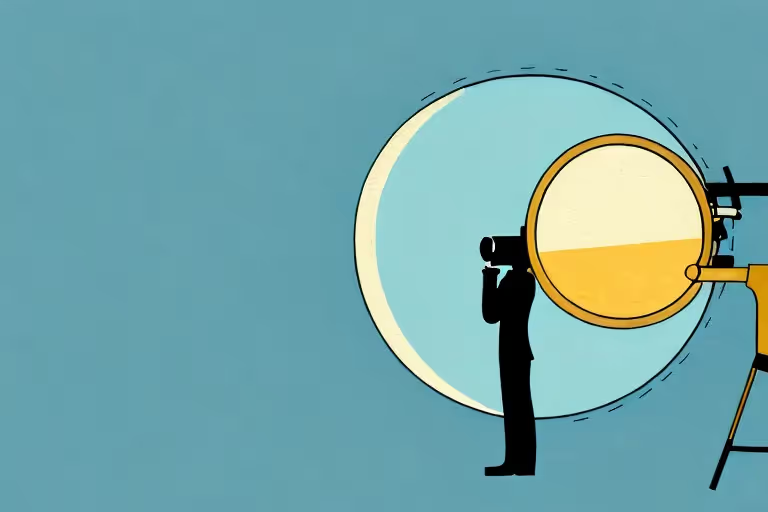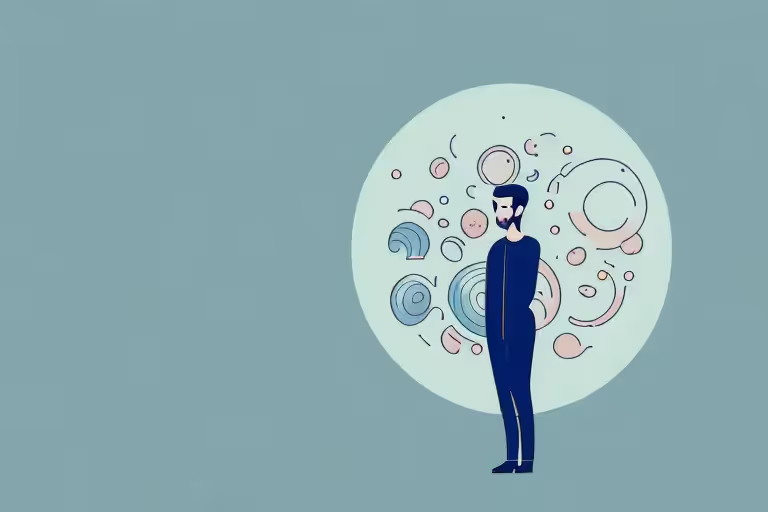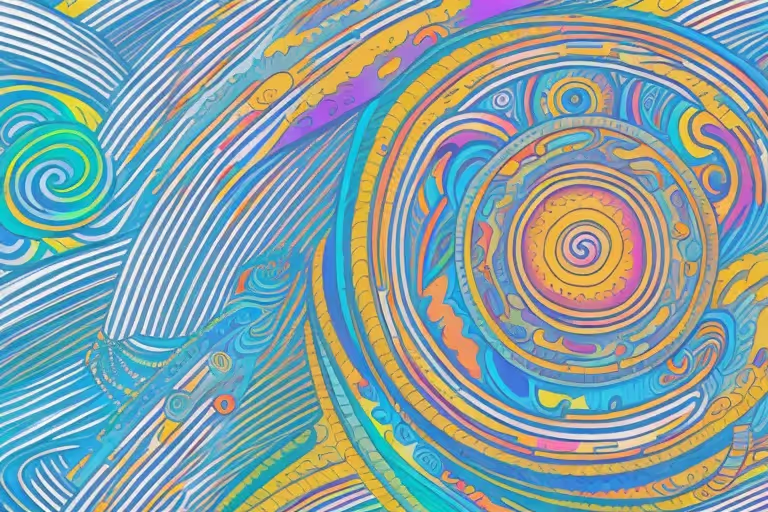If you find yourself tossing and turning at night despite taking Trazodone, you're not alone. Many people struggle with the same issue. In this article, we'll dive deep into the potential reasons why Trazodone may not be as effective as expected and explore alternative treatments for sleep disorders.
Understanding Trazodone and Its Uses
Before we delve into the possible reasons why Trazodone might not be working for you, let's first understand what exactly Trazodone is. Trazodone is an antidepressant medication that is commonly prescribed off-label for sleep disorders, such as insomnia. It works by increasing the levels of certain chemicals in the brain that help regulate sleep.
Trazodone has a fascinating history. It was first developed in the 1960s as an antidepressant, but its sedative effects were quickly discovered. This led to its off-label use for sleep disorders, as doctors realized its potential to promote restful sleep. Over the years, Trazodone has become a go-to medication for individuals struggling with insomnia.
What is Trazodone?
At its core, Trazodone is a serotonin antagonist and reuptake inhibitor. Don't let the fancy name intimidate you! Essentially, it means that Trazodone affects the levels of serotonin in your brain, which plays a crucial role in regulating sleep, mood, and anxiety.
Serotonin, often referred to as the "feel-good" neurotransmitter, helps to regulate various bodily functions, including sleep. It is involved in the sleep-wake cycle, promoting wakefulness during the day and inducing sleepiness at night. Trazodone works by blocking the reuptake of serotonin, allowing it to remain in the brain for longer periods.
Interestingly, Trazodone also has antagonistic effects on certain serotonin receptors. By blocking these receptors, Trazodone further enhances its sedative properties. This dual mechanism of action sets Trazodone apart from other antidepressants and makes it particularly effective for sleep-related issues.
Find Peace and Sleep Restfully with the Aura Meditation and Sleep Stories App
The Role of Trazodone in Treating Insomnia
It's important to note that Trazodone is not a cure-all for sleep disorders. It may work wonders for some, while others may not experience the desired effects. The effectiveness of Trazodone can vary from person to person due to several factors.
One factor that can influence the effectiveness of Trazodone is the dosage. Finding the right dosage is crucial, as too little may not provide the desired sedative effect, while too much can lead to excessive drowsiness and grogginess the next day. Working closely with your healthcare provider to determine the optimal dosage is essential for maximizing the benefits of Trazodone.
Another factor to consider is individual differences in metabolism. Each person metabolizes medications differently, which can affect how quickly Trazodone is absorbed and eliminated from the body. This can impact its duration of action and overall effectiveness in promoting sleep.
Additionally, underlying medical conditions and concurrent medications can also influence the efficacy of Trazodone. Certain medical conditions, such as liver or kidney impairment, can alter the way Trazodone is processed in the body. Similarly, other medications that interact with Trazodone can either enhance or diminish its effects.
Psychological factors, such as anxiety or stress, can also play a role in the effectiveness of Trazodone. Since Trazodone affects serotonin levels, which are involved in mood regulation, individuals with high levels of anxiety or stress may find it more challenging to achieve the desired sleep-inducing effects.
It's important to remember that finding the right sleep medication can be a trial-and-error process. If Trazodone is not working for you, it may be worth exploring other options or adjusting the dosage in consultation with your healthcare provider. Understanding the complexities of Trazodone and its potential limitations can help guide the search for an effective treatment for your sleep disorder.
Possible Reasons Why Trazodone May Not Be Effective
Incorrect Dosage of Trazodone
One possible reason for Trazodone not helping you sleep is that the dosage may not be optimized for your specific needs. The right dosage varies from person to person, and finding the sweet spot can be a challenge. If you suspect this to be the case, consult with your healthcare provider to discuss adjusting the dosage.
When it comes to Trazodone, finding the correct dosage is crucial for its effectiveness. Too low of a dosage may not provide the desired sleep-inducing effects, while too high of a dosage can lead to unwanted side effects. Your healthcare provider will consider various factors, such as your age, weight, and overall health, to determine the appropriate dosage for you.
It's important to note that finding the right dosage may require some trial and error. Your healthcare provider may start you off with a lower dose and gradually increase it until the desired sleep benefits are achieved. Regular communication with your healthcare provider is essential during this process to ensure optimal results.
Underlying Health Conditions
Another factor that could be affecting the effectiveness of Trazodone is an underlying health condition. Certain medical conditions, such as sleep apnea or restless leg syndrome, can interfere with the sleep-promoting effects of Trazodone. It's crucial to address any underlying health issues to improve your sleep quality.
Sleep apnea is a common sleep disorder characterized by pauses in breathing during sleep. This condition can disrupt the normal sleep cycle and prevent Trazodone from effectively promoting restful sleep. If you suspect you may have sleep apnea, it's important to undergo a sleep study to receive an accurate diagnosis. Treatment options for sleep apnea, such as continuous positive airway pressure (CPAP) therapy, can work in conjunction with Trazodone to improve your sleep quality.
Restless leg syndrome (RLS) is another condition that can interfere with the effectiveness of Trazodone. RLS is characterized by an uncontrollable urge to move the legs, often accompanied by uncomfortable sensations. These symptoms can make it difficult to fall asleep or stay asleep, even with the help of sleep medication. If you suspect you have RLS, consulting with a healthcare provider who specializes in sleep disorders can help you find appropriate treatment options.
Lifestyle Factors Affecting Sleep
Our habits and lifestyle choices have a significant impact on our ability to sleep soundly. Factors such as excessive caffeine intake, irregular sleep schedule, or high stress levels can interfere with the effectiveness of Trazodone. Taking a holistic approach and addressing these lifestyle factors can greatly enhance the quality of your sleep.
Caffeine, a stimulant found in various beverages and foods, can disrupt sleep patterns and make it harder to fall asleep. Limiting caffeine consumption, especially in the afternoon and evening, can help Trazodone work more effectively in promoting sleep. It's important to be mindful of hidden sources of caffeine, such as chocolate or certain medications.
Establishing a consistent sleep schedule is also crucial for optimizing the effects of Trazodone. Going to bed and waking up at the same time every day helps regulate your body's internal clock and promotes better sleep. Avoiding electronic devices and stimulating activities close to bedtime can also contribute to a more restful sleep experience.
Lastly, high stress levels can negatively impact sleep quality and interfere with the effectiveness of sleep medications like Trazodone. Incorporating stress management techniques into your daily routine, such as relaxation exercises or mindfulness meditation, can help reduce stress and promote better sleep.
By addressing these lifestyle factors and making positive changes, you can enhance the effectiveness of Trazodone in improving your sleep quality. It's important to remember that sleep is a complex process influenced by various factors, and a multifaceted approach is often necessary to achieve optimal results.
The Role of Tolerance in Trazodone Effectiveness
Understanding Drug Tolerance
Tolerance occurs when your body adapts to a specific medication over time, requiring higher doses to achieve the same effects. This phenomenon can potentially decrease Trazodone's effectiveness in promoting sleep. It's a frustrating reality, but there are steps you can take to manage tolerance.
Signs of Trazodone Tolerance
If you've been using Trazodone for sleep for an extended period and notice diminishing effects, it's possible that tolerance has developed. Signs of tolerance may include reduced sedation, shorter duration of sleep, or increased difficulty falling asleep. If you suspect tolerance, consult with your healthcare provider to explore alternative options.
Safe Practices When Using Trazodone
The Importance of Medical Supervision
It's paramount to emphasize the importance of medical supervision when using Trazodone or any other medication for sleep disorders. Your healthcare provider will monitor your progress, adjust the dosage if needed, and ensure your overall safety. Never hesitate to reach out if you have any questions or concerns.
Potential Side Effects of Trazodone
As with any medication, Trazodone carries the risk of potential side effects. These can include dizziness, daytime drowsiness, dry mouth, and blurred vision. It's important to be aware of these side effects and communicate any concerns with your healthcare provider.
Alternative Treatments for Sleep Disorders
Other Medications for Insomnia
If Trazodone isn't providing the desired results, there are alternative medications that may be worth exploring. Sleep aids such as benzodiazepines or non-benzodiazepine hypnotics can be prescribed to promote sleep, but these should only be used under medical supervision due to their potential side effects and risk of dependency.
Non-Medical Approaches to Improving Sleep
If you're wary of medication or seeking additional options to improve sleep without relying solely on Trazodone, you're in luck! Non-medical approaches like cognitive-behavioral therapy for insomnia (CBT-I), relaxation techniques, and creating a sleep-friendly environment can work wonders. These methods address the root causes of sleep disturbances and promote healthy sleep habits.
In conclusion, if you're wondering why Trazodone isn't helping you sleep, there could be several reasons at play. It's essential to work closely with your healthcare provider to find the correct dosage, address any underlying health conditions, and evaluate lifestyle factors that may be affecting your sleep. Remember, there are alternative treatments and non-medical approaches available to achieve a restful sleep. And if you're looking for additional support, consider checking out the Aura Health App, which offers mindfulness exercises, sleep stories, and tools to help you unwind and achieve a more refreshing sleep.
Aura is Your All In One App for Meditation, Mindfulness Wellbeing
Find peace every day with one app for your whole well-being. There is no one-size-fits-all solution to mental well-being. Aura is the first all-in-one wellness app that learns how to best help you. Discover an endless library of expert-created tracks for your well-being, all taught by the world’s best coaches, therapists, and storytellers. With Aura's personalized recommendations, you can find peace every morning, day and night.



.webp)






.avif)

%20(1).avif)


.avif)
.avif)
.webp)


.avif)


















































































































.avif)

















.svg)









